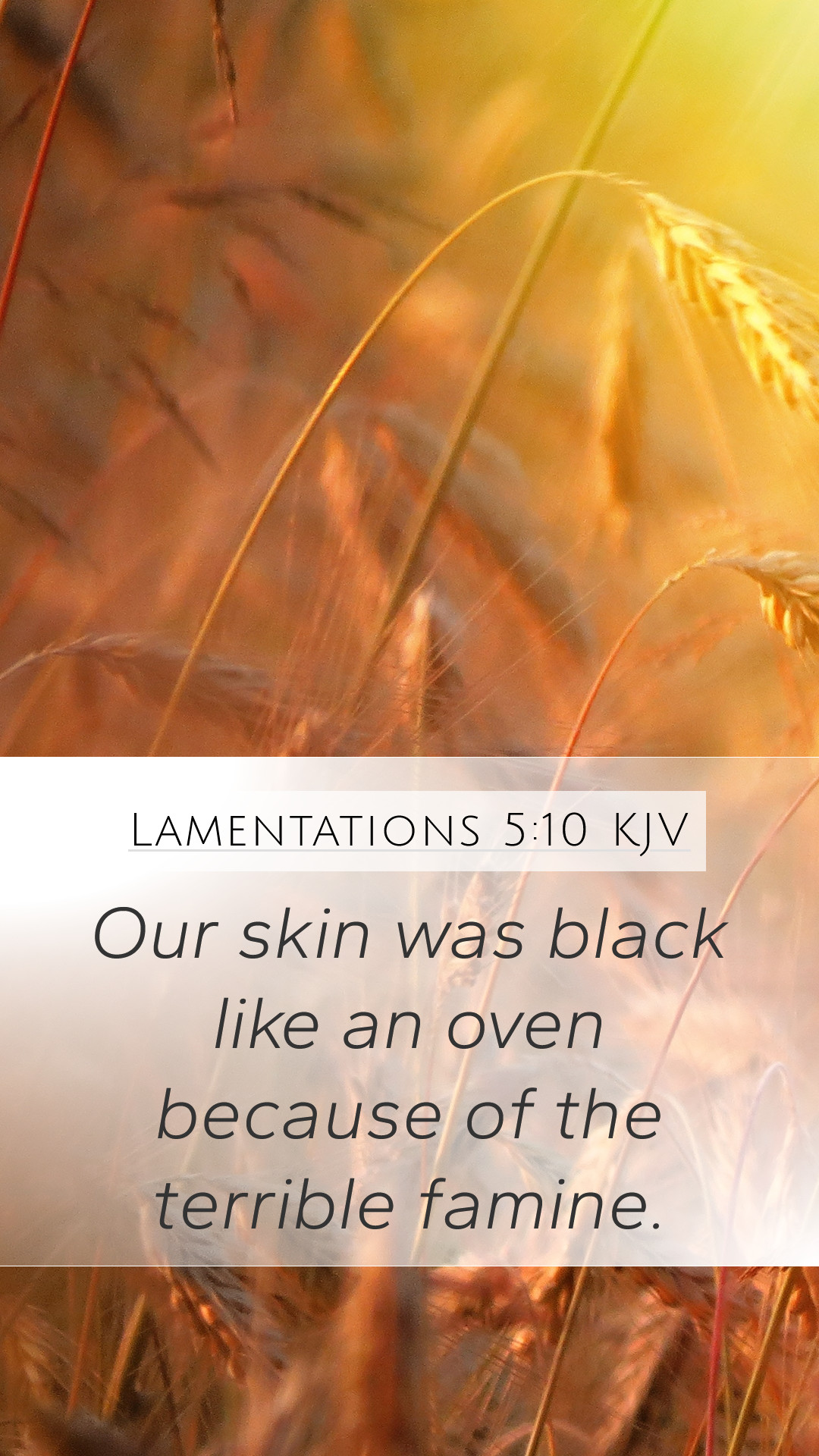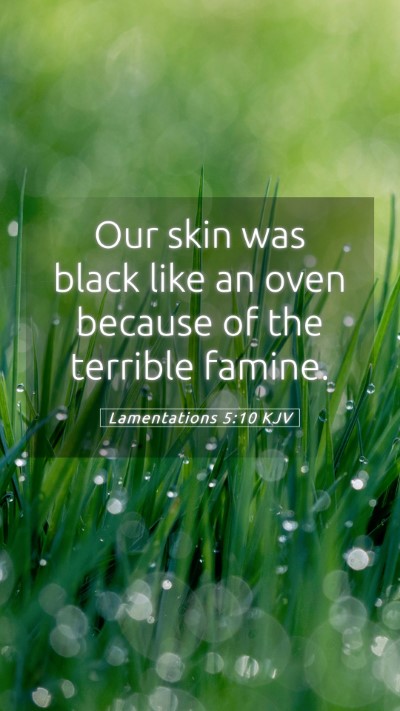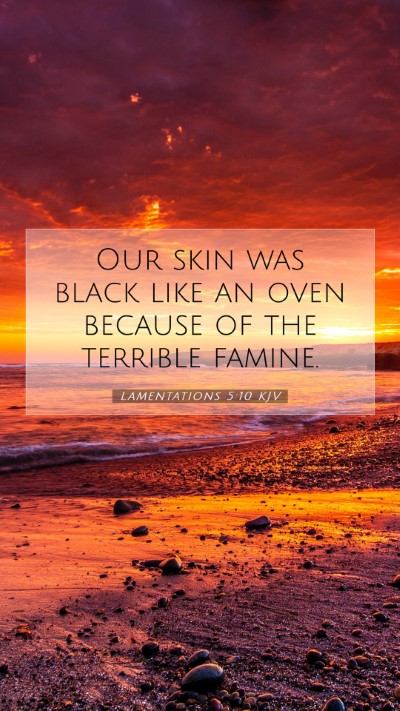Lamentations 5:10 - Summary and Interpretation
Lamentations 5:10 reads: "Our skin is hot as an oven because of the terrible famine." This verse captures the intense suffering faced by the people during a period of great distress and hunger. It is part of a broader lament that describes the anguish of the nation after the destruction of Jerusalem.
Overall Context
The Book of Lamentations expresses deep sorrow and mourning over the fall of Jerusalem and the suffering of its inhabitants, attributed to the consequences of sin and disobedience to God. This verse specifically highlights the severe physical and emotional toll that famine and desperation can take on individuals.
Bible Verse Meanings
- Physical Suffering: The phrase "Our skin is hot as an oven" metaphorically emphasizes the extreme heat and pain caused by hunger. This imagery underscores the desperation felt by those who have been deprived of food.
- Cultural Impact: Famine in ancient Israel often represented divine judgment, a recurring theme in biblical narratives. This verse reflects not just physical hunger but a spiritual and communal crisis.
- Community Lament: The communal aspect of the lament serves to unite the people in their sorrow, illustrating how shared suffering can bring a sense of collective identity.
Bible Verse Interpretations
Understanding Scripture
Understanding this verse requires an awareness of its historical context—Jerusalem had fallen to Babylon, and the people faced severe trials as a result. This commentary serves to provide insights not just into the text itself but also the broader implications for belief and practice among its readers.
To fully grasp the crux of Lamentations 5:10, it is helpful to explore other biblical passages that reflect similar themes:
- Deuteronomy 28:48: This verse outlines consequences of disobedience, foreshadowing the collective suffering due to famine.
- Psalm 102:4: A lament that echoes the feelings of desolation and suffering similar to those in Lamentations.
- Isaiah 51:18: Speaks of the plight of God’s people and their lack of comfort, reinforcing the message of suffering.
Application of the Verse
In modern application, Lamentations 5:10 can serve as a reminder of the consequences of turning away from God. It beckons believers to reflect upon their own lives and the collective impact of actions taken as a society. The intense emotions and vivid imagery invite readers to sympathize with those who suffer today, leading to greater compassion and action. Biblical exegesis encourages studying these verses not to dwell in despair but to recognize human suffering and strive towards restoration through faith and communal support.


